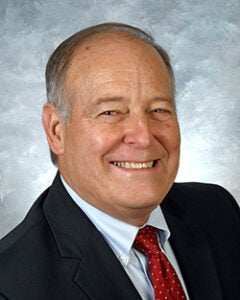Pornhub blocked: Why are Kentuckians losing access?
Published 8:37 am Wednesday, July 10, 2024
Kentuckians who try to access popular adult entertainment site Pornhub may be surprised to be blocked.
Due to a recently passed state law, Kentuckians will have to look elsewhere to access pornography for the indefinite future.
In April, Gov. Andy Beshear signed House Bill 278 into law, unanimously approved by the legislature.
While the overall bill is focused on enhancing penalties for a variety of sex crimes involving minors, a late addition included more stringent age verification requirements for sites containing a certain threshold of content considered “harmful to minors.” That includes pornography sites.
The law requires these sites to verify users are 18 or older — by using their government-issued forms of identification or other user activity data gathered by age verification providers associations.
In lieu of age verification, Pornhub completely blocked access to its content in Kentucky, beginning Wednesday.
Why block content?
The company has done the same in other states that have passed similar laws: Texas, Arkansas, Mississippi, Montana, North Carolina, Virginia and Utah. When users visit the site, they receive a pop-up message from Pornhub that states, in part:
“While safety and compliance are at the forefront of our mission, giving your ID card every time you want to visit an adult platform is not the most effective solution for protecting our users, and in fact, will put children and your privacy at risk.”
In a statement, Pornhub parent company Aylo stated that in response to a similar Louisiana law, the site implemented age verification methods. Site traffic dropped by approximately 80%.
“These people did not stop looking for porn,” Aylo’s statement reads. “They just migrated to darker corners of the internet that don’t ask users to verify age, that don’t follow the law, that don’t take user safety seriously, and that often don’t even moderate content. In practice, the laws have just made the internet more dangerous for adults and children.”
Aylo encourages an alternate solution to protecting minors from pornographic content—verifying users’ ages one time, on their device, using the help of operating system companies.
This method, similar to parental controls, would keep users from uploading personal information to enter each age-restricted site, but instead gatekeep content on an entire cell phone or computer operating system.
The U.S. Supreme Court agreed to hear a challenge to Texas’ similar law in its upcoming term. The Free Speech Coalition, a group of adult entertainment industries, is arguing that pornography is First Amendment-protected free speech. It says that the Texas law chills that speech.
In the meantime, the court is allowing the age verification law to remain in place.
Kentucky legislature anticipated Pornhub block
Kentucky lawmakers wanted to limit early or accidental exposure to pornography with the bill.
Rep. Matt Lockett, R-Nicholasville, cited a recent report that found that by the age of 17, 73% of teens had been exposed to pornography, either accidentally or on purpose. More than half encountered pornography accidentally.
The average age when children first consume pornography is 12.
Lawmakers knew they were risking Pornhub’s block when they voted for the bill in late March. Sen. Gex Williams, R-Verona, filed the age verification amendment and mentioned that other states had lost access during floor discussion.

“As soon as you pass it, some of the most egregious sites whose business is this child pornography, matter harmful to children, pull out of the state. That’s what we can expect to find happening,” Williams said. “…and in the time (until) there’s another ruling, we will have our children somewhat more protected.”
Other lawmakers expressed privacy concerns about handing over personal information on the Internet.
Sen. Whitney Westerfield, R-Fruit Hill, said his colleagues didn’t understand the extent of what the bill requires companies to do.
“This bill is going to require, or at least open up to substantial risk, that our government-issued IDs are going to be held by the very companies we don’t trust with any of that information right now,” Westerfield said.
He added that penalties for illegally storing personal information—$1,000 per day—won’t be enough to protect users.
Tuesday, Williams compared the age verification process to the real world. He wants to protect children by making the virtual world reflect real-world barriers to inappropriate content. Pornhub is like a bar owner, he said.
“You walk down Bourbon Street, and there’s all sorts of acts going on behind the closed doors. But there’s proprietors that have these closed doors,” he said. “You might look at the advertising and you sort of can tell what’s going on there but you can’t really see everything that’s going on. But if you show your ID you can go and see what it’s about.”






